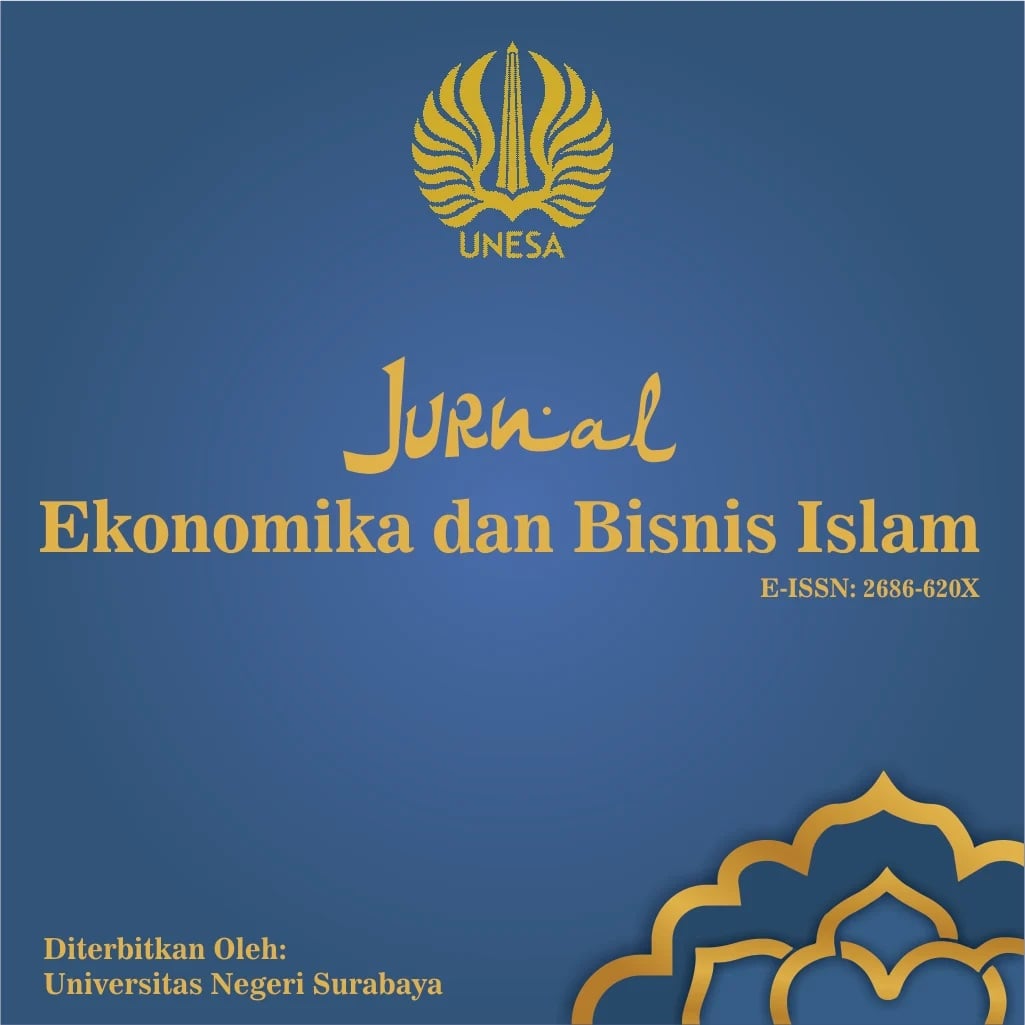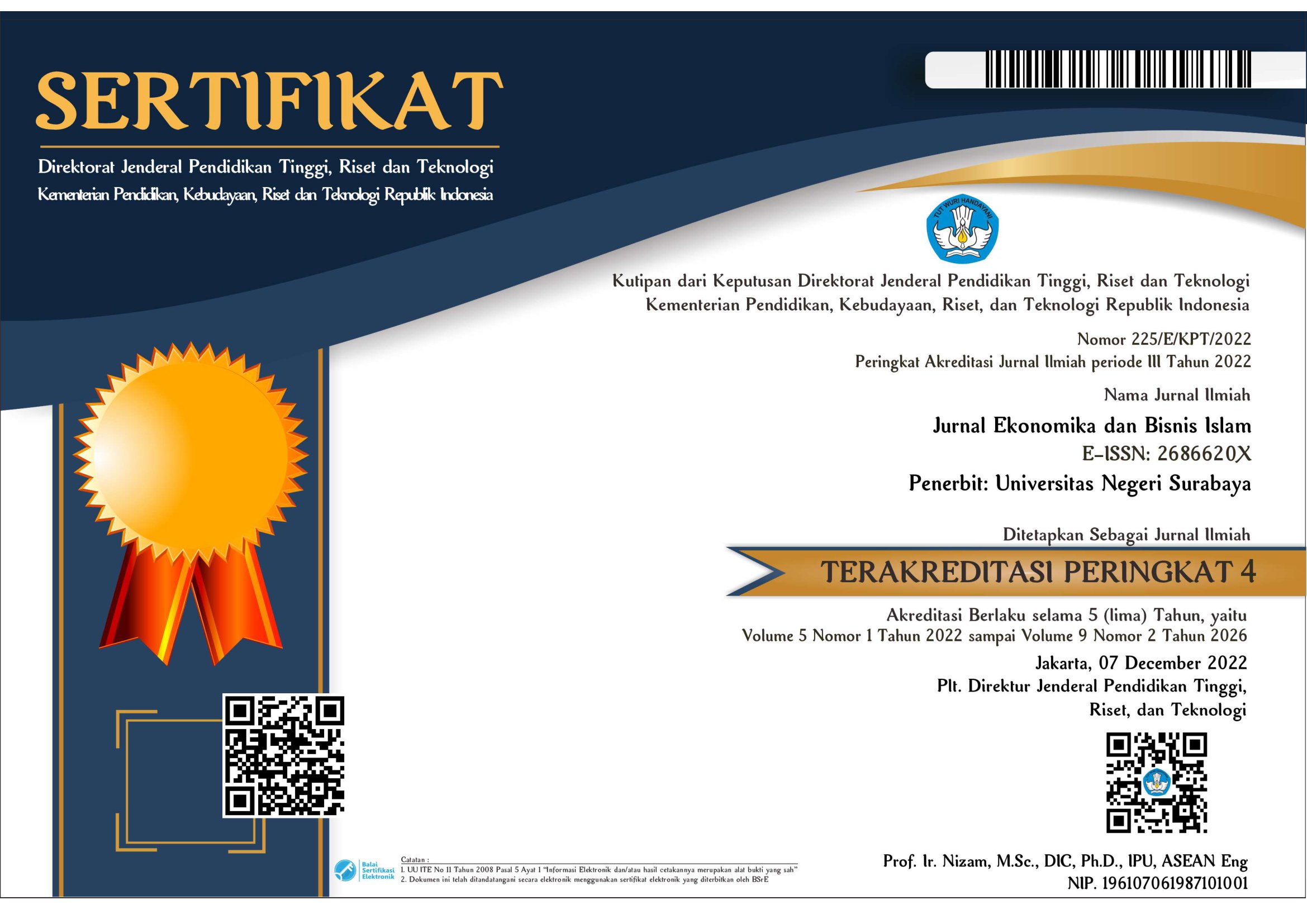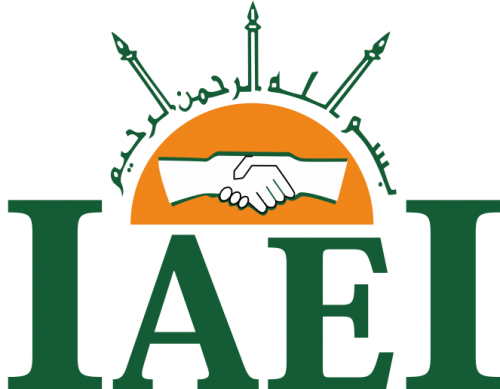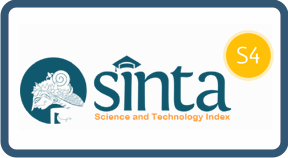Implementasi Program Corporate Social Responsibility Pabrik Gula Tjoekir Terhadap Kesejahteraan Masyarakat Desa Cukir
DOI:
https://doi.org/10.26740/jekobi.v8n2.p57-64Keywords:
CSR, community welfare, triple bottom line, maqashid shariah, PG TjoekirAbstract
This study aims to analyze the implementation of Corporate Social Responsibility (CSR) programs carried out by Pabrik Gula (PG) Tjoekir and their impact on the welfare of the community in Cukir Village. The research employed a descriptive qualitative approach using interviews, observations, and documentation as data collection techniques. The results indicate that PG Tjoekir’s CSR initiatives are categorized into four main sectors: economy, socio-cultural, infrastructure, and health. In the economic sector, the company implements sugarcane farming partnerships and entrepreneurship training. However, employment through fixed-term contracts (PKWT) is excluded from CSR since it is part of the company’s operational activities governed by tax law No. 36 of 2008 and Company Law No. 40 of 2007. In the socio-cultural domain, the company supports religious and cultural events such as the Haul of Gus Dur and contributes to the construction of worship facilities. In the infrastructure sector, CSR contributions include road development and the normalization of 2,700 meters of irrigation canals. In the health sector, PG Tjoekir facilitates free medical services, fogging, and the distribution of food packages and vitamins to the community. Overall, these programs have had a positive impact on improving community welfare, although the benefits are not yet fully equitable and participatory. The study concludes that PG Tjoekir's CSR addresses key aspects of the Triple Bottom Line and Maqashid Shariah values. However, improvements are needed in transparency, impact evaluation, and community engagement to ensure inclusive and sustainable development.
References
Adi, S. (2013). Parameter umum dalam mengukur kesejahteraan masyarakat: ekonomi, perumahan, pendidikan, kesehatan, lingkungan, spiritualitas, rekreasi, dan jaminan sosial. Jurnal Inisiatif Pengembangan Masyarakat, 10(1), 15–28.
Asmara, T. T. P., Murwadji, T., Kartikasari, & Afriana, A. (2023). Corporate Social Responsibility and Cooperatives Business Sustainability in Indonesia: Legal Perspective. Sustainability, 15(7).
Az Zahrani, G., Bilqis, L., Mulyanti, Y., & Ahmad Mughni, J. (2025, Mei 16). Analisis perbandingan Corporate Social Responsibility (CSR) dan zakat dalam perspektif manajemen keuangan syariah. Jurnal Ekonomi Manajemen dan Bisnis (JEMB), 2(5), 173–184.
Carroll, A. B., & Brown, J. (2023). Corporate social responsibility in a global context: Revisiting theories and practices. Business & Society Review, 128(1), 45–68.
Dalimunthe, R. H., & Arif, M. (2022). Analysis of the Implementation of Corporate Social Responsibility (CSR) in Islamic Financial Institutions in the Triple Bottom Line Perspective. East South Journal
Dusuki, A. W., & Abdullah, N. I. (2007). Maqasid al Shari’ah, Maslahah, and Corporate Social Responsibility. American Journal of Islamic Social Sciences, 24(1), 25–45
Gani, N. R., Ahmad, S., & Jusoh, A. F. (2019). Relevance of Maqasid Al Shariʿah in Corporate Social Responsibility. International Journal of Academic Research in Business and Social Sciences, 9(11).
Hendar, J. (2023). Maqashid Sharia as the basis for decision making of corporate social responsibility based on a prophetic legal paradigm. Jurnal Pembangunan Hukum
Hendar, J., Chotidjah, N., & Rohman, A. (2021). Implementasi Tanggung Jawab Sosial Perusahaan pada Perbankan Syariah Ditinjau dari Maqashid Syariah. Anterior Jurnal, 20(3), 70–79.
Hidayat, M. (2023). Implementasi Konsep Triple Bottom Line dalam Pengembangan kawasan wisata air terjun Takapala. Economics and Digital Business Review, 4(1), 797–804.
Huda, M. (2011). Konfigurasi infak, sedekah, zakat, dan wakaf untuk kemandirian umat: Sebuah model integratif membangun filantropi Islam di era Indonesia kontemporer. Justicia Islamica, 8(2), 44–56.
Jaatsiyah, A. F. J., & Widinarsih, D. (2023). A new CSR paradigm for state‑owned enterprises in Indonesia. Journal of Humanities and Social Studies, 6(3).
Juliano, K. A., & Rofiaty, R. (2023). Implementasi Corporate Social Responsibility (CSR) Berdasarkan Konsep Triple Bottom Line. Jurnal Kewirausahaan dan Inovasi, 2(4).
Lisnawati, S. (2016). Metode penelitian kualitatif: sumber dan teknik pengumpulan data primer dan sekunder. Dalam In: Metode Penelitian Kualitatif – Santi Lisnawati. Diakses dari Santilisnawati.wordpress.com, Maret 2021.
Miles, M. B., & Huberman, A. M. (1994). Qualitative Data Analysis: An Expanded Sourcebook (2nd ed.). Sage Publications.
Mohd Zain, F. A., & Wan Abdullah, W. A. (2025). Development of a comprehensive sustainability performance index for takaful operators: integrating Maqasid Al-Shariah and stakeholder perspectives.
Muchlis, S., & Sukirman, A. S. (2016). Implementasi Maqashid Syariah dalam Corporate Social Responsibility di PT Bank Muamalat Indonesia. Jurnal Akuntansi Multiparadigma, 1(2).
Mulyani, S. I., Karsidi, R., Kartono, D. T., & Anantanyu, S. (2025). Creating shared value through sustainable partnerships: The role of CSR in the spice farming sector in Indonesia. Research Journal in Advanced Humanities, 6(1).
Ode, H., Natsir, I., & Mayndarto, E. C. (2025). Shariah and Corporate Social Responsibility: A Comparative Analysis of Shariah-Compliant Businesses in Indonesia and Malaysia. SOLJ Journal
Pemerintah Provinsi Jawa Timur. (2016). Peraturan Daerah Provinsi Jawa Timur Nomor 4 Tahun 2016 tentang Tanggung Jawab Sosial dan Lingkungan Perusahaan.
PTPN X. (2022). Laporan Tahunan 2022: Implementasi CSR dan Dampaknya.
Purnama, Y. I. (2024). Implementation of the triple bottom line concept to improve sustainable marketing performance. Journal of Economics and Business Letters, 4(2), 40–50.
Purnomo, J. H., & Hidayati, N. N. (2025). Islamic Social Business Model in Enhancing Community Welfare: A Maqashid Shariah and Sustainable Economy Approach. MJIE Journal.
Putri, N. W. (2019). Implementasi penerapan Islamic Corporate Social Responsibility pada Spiritual Company Waroeng Group perspektif Maqasid al Syariah. Valid: Jurnal Ilmiah, 16(2), 208–214.
Radisatra, B., & Ganiem, L. M. (2024). The influence of CSR communication on legitimacy, trust and reputation of BPJS Ketenagakerjaan. Jurnal ICT: Information and Communication Technologies, 16(1).
Salimudin, M., & Jubaedah, D. (2024). Islamic Corporate Social Responsibility (ICSR): Kerangka konseptual dan pelaporan berdasarkan maqashid syariah. Jurnal Ilmiah Ekonomi Islam.
Sani, N. T., Kinanti Mutiara, R. S., & Pratama, K. R. (2023). Stakeholders alignment in CSR implementation in Southeast Asian agro industry. Global South Review.
Sanityastuti, M. S. (2010). Corporate Social Responsibility (CSR) sebagai aktualisasi zakat, infaq dan shadaqah (ZIS). Jurnal Komunikasi, 3(2), 151–162.
Sayekti, Y., Agustini, A. T., Irmadariyani, R., & Purnamawati, I. (2024). Value relevance on Shariah Corporate Social Responsibility disclosure: An ethical perspective in agroindustry companies in Indonesia. Himalayan Journal of Economics and Business Management, 5(1).
Seran, M. D. A. L., Hwihanus, H., & Lavenia, L. (2024). Urgency of Corporate Social Responsibility (CSR) for Corporate Advancement in Indonesia. Jurnal Sains Sosio Humaniora, 8(1).
Setiawan, I. (2023). The significance of corporate social responsibility in sustainable development: An analysis from an Islamic law perspective. UIN Sunan Gunung Djati Repository
Sugiyono. (2005). Metode penelitian kuantitatif, kualitatif, dan R&D. Bandung: Alfabeta.
Suharto, E. (2005). Membangun masyarakat, memberdayakan rakyat: Kajian strategis pembangunan kesejahteraan sosial dan pekerjaan sosial. Bandung: Refika Aditama.
Suryanti, & Susilowati. (2025). Kesejahteraan masyarakat dalam perspektif kebutuhan dasar dan rohani: studi pada kawasan urban di Jawa Timur. Jurnal MAS: Pemerintah dan Kebudayaan, 4(2), 45–60.
Untung, R., Wahyudi, E., & Syafrina, A. (2017). Analisis efektivitas program CSR dan partisipasi masyarakat dalam pembangunan. Jurnal Ilmu Sosial dan Ilmu Politik, 21(1), 53–67.
Waswa, F., Netondo, G., & Wekesa, S. (2009). Enhancing household food and income security through improved sugarcane production: The case of Kakamega district, Kenya. Journal of Sustainable Development in Africa, 10(4), 113–127.
Yhulliyani, N. (2018). Pengaruh CSR terhadap Petani Tebu dan Karyawan Pabrik Gula Tjoekir PTPN X Kabupaten Jombang (Skripsi, UIN Syarif Hidayatullah Jakarta).
Yuliarthi, N. W., Supiani, N., Hasanah, U., & Saputra, M. F. (2024, Desember 30). Implementation of Zis (Zakat, Infaq, Sedekah) with Corporate Social Responsibility (CSR) in an Effort to Support the SDGs Program (Case Study: Point 1 No Poverty). Journal of Finance and Business Digital, 3(4), 337–354.
Zuhroh, A. A., & bin Lahuri, S. (2020). Implementing CSR in Sharia Hotels for Sustainable Social Development: A Maqashid Sharia Perspective. CSR Journal
Downloads
Published
How to Cite
Issue
Section
License
Copyright (c) 2025 Ferdiyansyah Muhammad , Yasin Ach.

This work is licensed under a Creative Commons Attribution 4.0 International License.
This work is licensed under a Creative Commons Attribution 4.0 International License.
 Abstract views: 88
,
Abstract views: 88
, PDF Downloads: 72
PDF Downloads: 72














